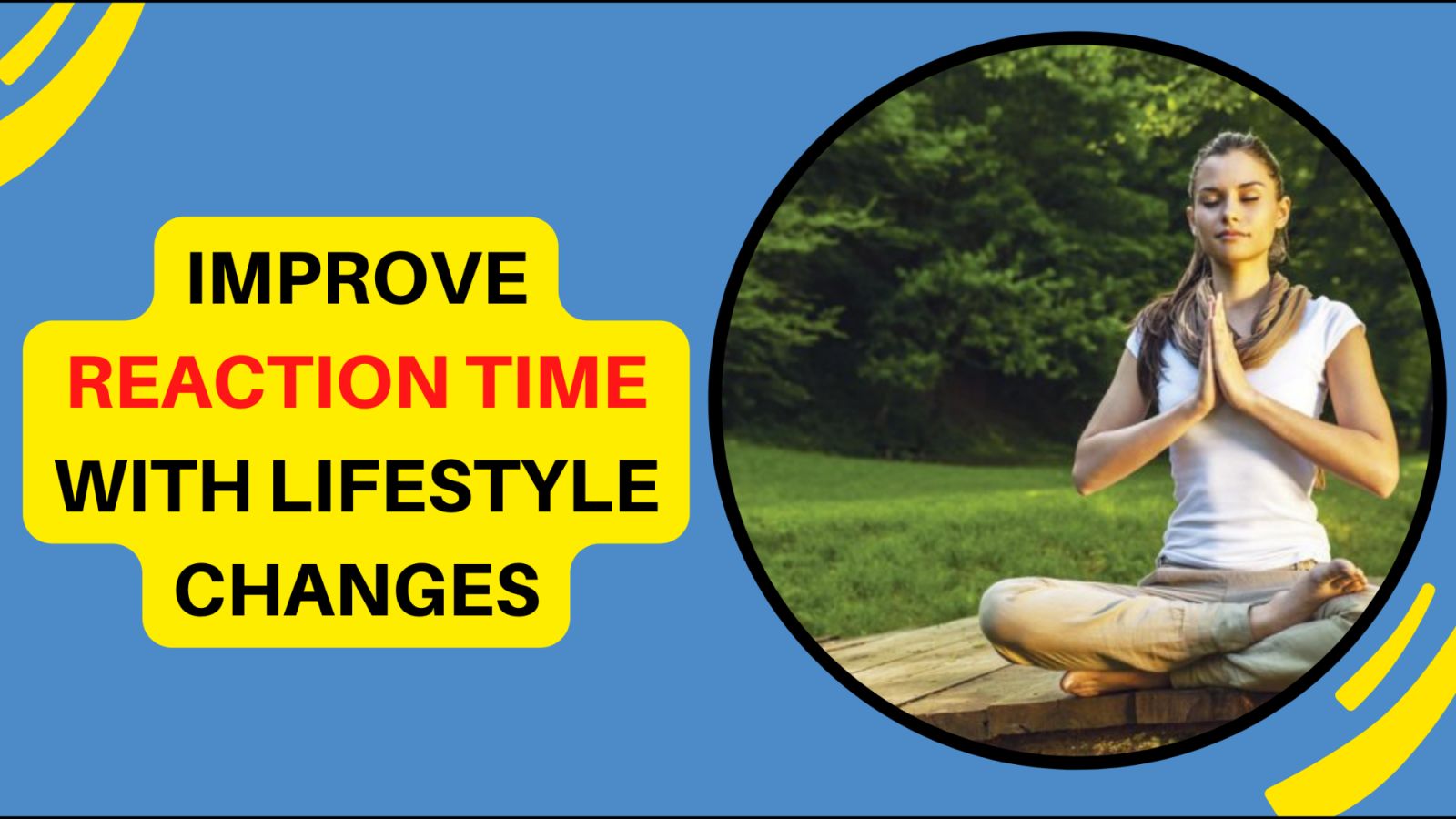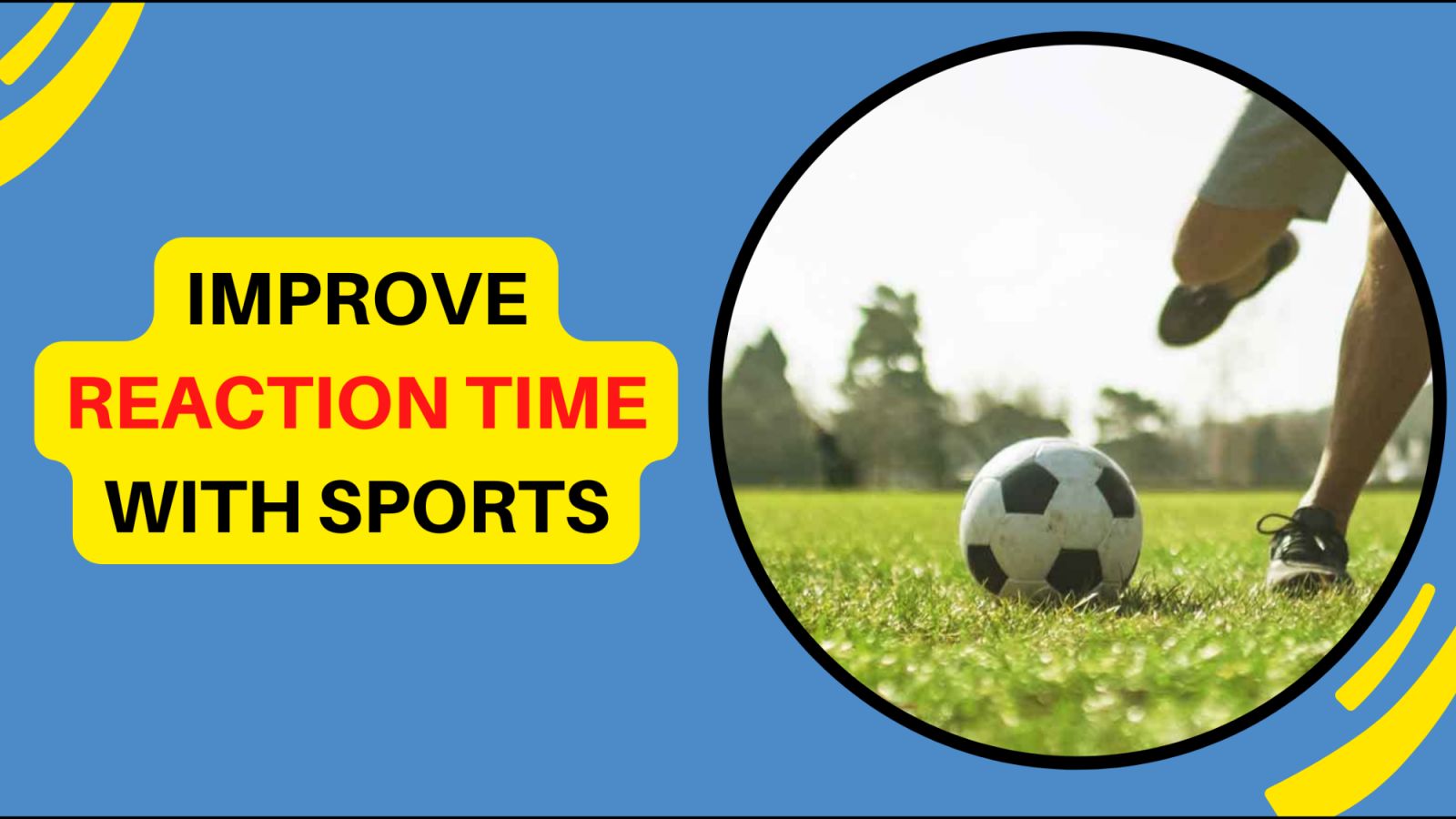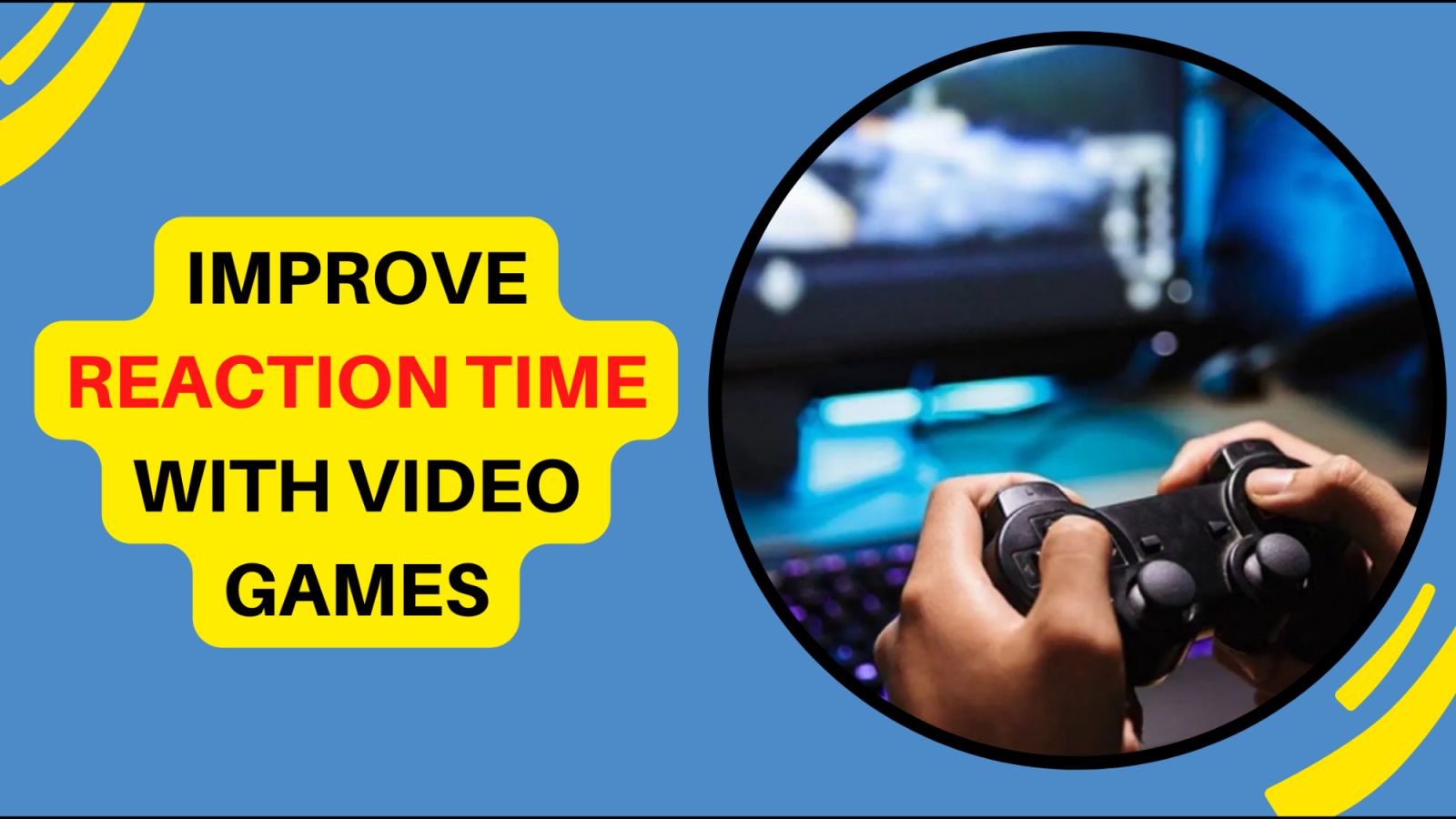How to Improve Reaction Time Through Physical and Mental Exercises
What does catching a ball, walking up the stairs, and covering your eyes have in common? They’re all ways that the body can react to its environment. Fast reaction time, which measures how long it takes for your body to respond to external forces, is essential for leading a safe, healthy life.
You can strengthen and improve your reaction time through a variety of exercises and lifestyle factors. Whether you’re meditating, kicking a soccer ball, or playing For Honor, these science-backed tips will help you improve reaction time both in the game and in life.
The Reaction Test measures your reaction time in a simple tool. With this online tool, you can measure your reaction time else.
What Is Reaction Time and Why Does It Matter?
The senses are engaged in a variety of different ways. Sometimes, it’s just one sense that’s stimulated, such as when you close your eyes in response to bright light. Other times, multiple senses can be involved at the same time, igniting multiple sensory reactions.
Stimulation of the senses results in a signal, which is sent to the central and peripheral nervous systems. These signals are essentially electrical impulses, or messengers, delivering information to the rest of the body. The message travels through the brain, down the spinal cord, and to the areas of the body that need to respond.
Having a fast reaction time means that your brain and spinal cord are quickly sending messages to your bones, muscles, and joints in order to make appropriate movements.
Protecting the Body From Harm
Reaction time is important because it helps protect the body from potential injury and harm. Let’s say you slip and fall on ice — a fast reaction time could mean the difference between catching yourself and hitting your head. It isn’t just getting into an accident that requires a fast reaction time, however.
Ordinary daily actions are also strengthened and made safer by having a prompt reaction time. Driving, walking, cooking, running, and even doing the laundry are all examples of activities that require a fast reaction time. Without a quick reaction, these seemingly mundane activities can become opportunities for injury.
Aging and Reaction Time
Unfortunately, reaction time naturally decreases with age. This is primarily due to impaired or reduced cognitive functioning. As discussed above, quick engagement of the brain is essential for signaling the body to react to its environment. When the brain isn’t reacting at optimum speed, falls and injury are more likely to occur.
This was demonstrated in a study on older cancer survivors, which sought to determine the relationship between cognitive function, physical mobility, and falls. The study found a direct connection between decreased brain functioning and falling-related injuries.
“As the cognitive processes of recall, orientation, and executive function become more impaired in this population, falls incidence increases, gait speed decreases, and balance becomes more impaired,” says Jennifer Blackwood, the study’s author.
This suggests that falls among older people are directly related to a reduction in simple reaction time. This is especially true for more complicated movements that involve multitasking, increased motor response, and more complex thinking. It also suggests that simple aspects of physical mobility, such as walking, gait speed, cadence, and step length, are all associated with a decline in reaction time. This is why the risk of falling often increases with age: It becomes harder to catch yourself and prevent injury as reaction time slows.
Unlike reflexes, which aren’t processed by the brain, reaction time can be strengthened and improved through lifestyle changes. Cognitive exercises, meditation and mindfulness, and nutritional supplements are all factors that can boost reaction time in a safe and healthy way.
Cognitive Exercises
First and foremost, increasing reaction time requires that you strengthen the brain. Learning new things and challenging the brain helps strengthen neurons and decrease the brain’s response time.
Using your non-dominant hand to do things you normally do with your dominant hand is one simple, yet effective cognitive exercise. Signing your name or drawing basic figures asks your brain to think in an entirely new way, thereby rewiring neural pathways. Brushing your teeth, eating, pouring a drink, or using the remote are all things you can try with your non-dominant hand.
Meditation and Mindfulness Exercises
Multiple mindfulness exercises have proven to reduce the length of time it takes to react to external forces. Meditation, for example, has the ability to calm the mind while strengthening the brain’s responses. The relationship between meditation and reaction time was explored in a study on 45 young, healthy volunteers. The participants practiced guided meditation for a course of 12 weeks.
The results showed that the meditation had a positive impact on auditory and visual reaction time. In addition to improving reaction time, meditation also increased alertness. Another study on yoga breathwork showed that simple breath awareness in women can improve reaction time and increase one’s ability to pay attention.
Similarly, yoga asanas (physical poses) have been shown to reduce delays in reaction time while improving mobility and mental functioning. Findings from one study showed that yoga had a positive impact on mobility, reaction time and the overall well-being of diabetes patients. Specifically, leg lift variations such as waterfall pose (lying down with the legs lifted in the air), improved body systems associated with reaction time.
Nutrition and Brain Health
It’s clear that proper brain functioning is critical for fast reaction times. Eating a diet that nourishes the brain and spinal cord can help maintain your motor skills and reflexes. Antioxidants, for example, contain polyphenols that protect the brain from the negative, age-related impacts of stress, which can contribute to cognitive decline.
Foods like blueberries, raspberries, blackcurrants, and pomegranates are a source of this nutrition. Vitamin K, found in broccoli, is another essential nutrient for brain health because it’s directly related to proper brain functioning. Caffeine and reaction time also have a positive relationship. In a study on people who practice tae kwon do, caffeine increased reaction time during combat.
Athletic Performance, Video Games, and Reaction Time
While some aging-related changes are inevitable, staying physically fit and playing sports can help you maintain quick brain functioning over time. If you’re an athlete, reaction speed is directly tied to high athletic performance. Whether it’s catching the ball, sprinting to the finish line, or kicking the goal, quickness is essential for winning the game.
Think about it: a soccer goalie only has about 0.3 seconds to react during penalty kicks. Quick reaction is essential not only for winning the game but for being able to play at all.
HOW TO IMPROVE REACTION TIME WITH SPORTS
Wondering how to improve reaction time? Exercises such as ladder drills, agility drills, and specialized plyometrics can aid in decreasing reaction time. Elite athletes are also turning to digital reaction drills to help the brain process more information in less time. Kawhi Leonard of the Toronto Raptors used strobe glasses to help the brain process visual stimuli more quickly and efficiently. Similar to ball drills, these goggles have strobe lights inside, which forces the brain to work through more complicated stimuli than usual.
“Once the lights are off, the brain will be able to process information much faster as there is no more interference. This allows for faster movement and swifter reaction time,” says Dr. Alan Reichow, who helped develop the glasses.
To improve your reaction time for increased athletic performance, a tennis ball is an invaluable tool. A six-sided ball called a reaction ball or bouncy ball can also work. Simply throw the ball against a surface so that it can bounce back at you. This makes your mind think more quickly because you have to catch the ball before it goes elsewhere.
Repeating the same motion over and over is another way to improve your brain’s ability to process information. It helps turn a sports move, such as catching a tennis ball, into an involuntary reflex that the brain doesn’t have to think about before making.
HOW TO IMPROVE REACTION TIME WITH VIDEO GAMES
most people don’t know just how much their brain is at work. In fact, numerous studies over the past fifteen years have demonstrated that people who play action video games have higher cognitive abilities than people who don’t. This is because action video games, like Counter-Strike, Fortnite, and For Honor, all require a very fast reaction time in order to play. They also require skills associated with reaction time, such as spatial attention, multitasking, and adapting to predetermined rules.
Another study on action games and the Simon Effect showed similar results. The Simon Effect, a conflict in the attention system, is when reaction time slows down as sensory stimulants are moved farther away. The Simon Effect is present in sports where a ball kicked from father away may be harder for a goalie to stop. This study showed that action video games can lessen the negative impact of the stimulus being far away. In other words, playing action games can improve reaction time, regardless of where the stimulus is.
IMPORTANCE OF REACTION TIME FOR HEALTH AND LONGEVITY
A fast reaction time is essential for safe mobility, healthy aging, and peak athletic and gaming performance. Although reaction time naturally slows over time, there are many ways to train the brain to react more quickly. By decreasing the amount of time it takes to react, you can prevent injury and harm, and become more resilient against potential dangers.
Mindfulness exercises like yoga, breathwork, and meditation all play a role in making the mind stronger. Sports like tennis and soccer can also improve reaction time, especially when played repetitively. Whether you’re catching a soccer ball as a goalie or playing your way through a video game, focusing on your reaction time can undoubtedly improve your long-term quality of life.




